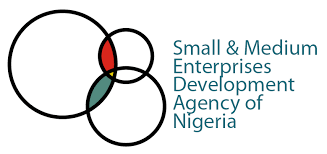In a strategic move to bridge the significant funding gap within Nigeria’s Micro, Small, and Medium Enterprises (MSMEs) sector, the Small and Medium Enterprises Development Agency of Nigeria (SMEDAN) has initiated discussions with multiple banks. This development aims to unlock potential partnerships and address the estimated $158 billion shortfall faced by MSMEs, as revealed by Director-General/Chief Executive Officer of SMEDAN, Dr. Olawale Fasanya, during a press conference held to commemorate World MSME Day.
SMEDAN has engaged with Sterling Bank Plc, Jaiz Bank Plc, Bank of Industry, and other banks to upscale the existing matching fund program. The agency has already made significant progress, as Jaiz Bank Plc has joined forces with SMEDAN to establish a N1.2 billion matching fund dedicated to MSME development. Under this partnership, Jaiz Bank Plc will provide N600 million, while SMEDAN will contribute the remaining N600 million. The fund will be disbursed as low-interest loans to MSMEs seeking funding ranging from N500,000 to N2.5 million.
Dr. Fasanya emphasized the importance of the intervention, stating, “SMEDAN initiated the Matching Fund Program for the Micro and Small Enterprises, especially those in Agribusiness, to bridge the huge funding gap within the MSME community, which has been put at over $158 billion. The intervention delivers credit as a promotional mechanism to enhance enterprise output, competitiveness, and job creation. The Agency seeks partnerships to deepen the reach of this initiative.”
In addition to the Matching Fund program, SMEDAN is working towards establishing the SMEDAN Micro Finance Bank (MFB). Recognizing that nano and micro enterprises constitute about 90% of Nigeria’s MSMEs and often struggle to access credit facilities from regular financial institutions, SMEDAN aims to bridge this gap. The proposed MFB, modeled after successful institutions in India and Bangladesh, will provide easy access to loans at reduced interest rates, with minimal room for default.
Dr. Fasanya stressed the critical role of MSMEs in the economy and the need to foster their growth within an enabling ecosystem. SMEDAN’s establishment aligns with global best practices, and over the years, the agency has addressed various constraints in MSME development through policy frameworks. The revised National Policy prioritizes coordinated mechanisms to ensure the active and prosperous growth of the MSME sub-sector.
According to a joint survey conducted by the National Bureau of Statistics (NBS) and SMEDAN in 2020, MSMEs in Nigeria contributed significantly to employment (84% of the total) and the GDP (46.31%). However, their contribution to Nigeria’s total export basket stood at a mere 6.21%, highlighting the need to enhance their global competitiveness. Dr. Fasanya emphasized the urgency to transform this narrative, especially with the anticipated impact of the fuel subsidy removal on the MSME sub-sector.
While expecting further support from key stakeholders, SMEDAN has already implemented support systems that serve as a launchpad for MSMEs’ development. The agency’s interventions focus on capacity building, advocacy, access to finance, technology/equipment, markets, raw materials, and data, along with appropriate policy frameworks.
Through sustained advocacy visits and the Conditional Grant Scheme (CGS), SMEDAN seeks to facilitate easier access to usable loans for MSMEs. The CGS aims to formalize informal nano and micro enterprises, offering capacity building, registration with the Corporate Affairs Commission (CAC), micro-insurance, and grants of N50,000 each. Since its inception in 2017, the CGS









